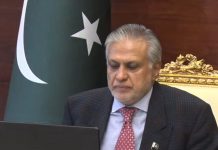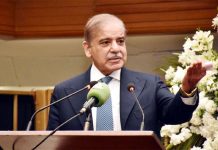- Protestors defy Section 144
- Key figures amongst more than 100 arrested in Delhi
- Internet services blocked in various cities
From Christina Palmer
NEW DELHI: India, the self-proclaimed biggest democracy of the world, in sheer violation of human rights, democratic values and right to assembly and expression of the citizens, imposed ban on protests against Citizenship Amendment Act, but the angry protestors defiantly came out in droves and held demonstrations on roads, streets and parks and blasted the Modi Government vociferously, as they are staging protesting for the last several days. Police detained more than 100 protesters in key Indian cities on Thursday as they defied a ban on protests that authorities hope to stop widespread demonstrations against a new citizenship law that opponents say threatens the secular nature of Indian democracy.
Dozens of demonstrations were to take place around the country as opposition grows to a new citizenship law that excludes Muslims. The law has sparked anger at what many see as the government’s push to bring India closer to a Hindu state. Historian Ramchandra Guha, a biographer of India’s independence leader Mohandas Gandhi, was among those detained in Bangalore, the capital of southern Karnataka state.
When reached by the phone, Guha said he was in a bus with other detainees and did not know where the police were taking them.
In New Delhi, Yogendra Yadav, the chief of the Swaraj India party, was among those detained as protesters said they would go ahead with a demonstration at New Delhi’s iconic Red Fort and surrounding historic district.
Internet service was blocked in some parts of New Delhi, a tactic Indian authorities are known to use in other parts of the country, such as occupied Kashmir, to try to stop protests from being organised. Such tactics are rare for the capital. The new citizenship law applies to Hindus, Christians and other religious minorities who are in India illegally but can demonstrate religious persecution in Muslim-majority Bangladesh, Pakistan and Afghanistan. It does not apply to Muslims.
Critics say it’s the latest effort by Prime Minister Narendra Modi’s Hindu nationalist-led government to marginalise India’s 200 million Muslims and a violation of the country’s secular constitution. Modi has defended it as a humanitarian gesture. The law’s enactment last week follows a contentious process in northeastern Assam state intended to weed out people who entered illegally.
Nearly two million people in Assam were excluded from an official list of citizens, about half Hindu and half Muslim, and have been asked to prove their citizenship or else be considered foreign. India is also building a detention centre for some of the tens of thousands of people the courts are expected to ultimately determine have entered illegally. Modi’s interior minister, Amit Shah, has pledged to roll out the exercise nationwide.
Some Indian Muslims fear it’s a means by which Hindu nationalists can put them in detention or deport them from the country.
On Wednesday, authorities tightened restrictions on protesters, expanding a blockade of the internet and a curfew in Assam.
Hundreds of Indians held for defying a ban on demonstrating against a disputed new citizenship law continued protests in police detention on Thursday, and authorities shut down the internet for hours to help enforce bans on public gatherings.
Public anger and staunch opposition from political parties over the new legislation widely considered to be discriminatory toward Muslims has flared across the country.
Marches and rallies organized by college students, academicians, minority Muslim groups and opposition parties against the law passed by the Hindu nationalist government persisted despite legal moves to stifle them.
In the financial capital Mumbai, more than 5,000 protesters gathered on Thursday evening, forcing the police to impose traffic restrictions.
Haroon Patel, an Indian citizen who lives in London, joined the protest in Mumbai, calling the new law the first step toward dictatorship. “We have to save the country,” said Patel.
Supporters of the bill also took to the streets in the major western state of Gujarat. “The fault lines are defined – either one supports the law or stands against (it)…Indians have to decide and protest,” said Rupak Doshi, who organized a large rally in support of the law in Gujarat’s main city Ahmedabad.
Police detained hundreds of people in Delhi and the southern city of Bengaluru on Thursday and shut down the internet in some districts as protests entered a second week over a law that critics say undermines India’s secular constitution.
Yogi Adityanath, a senior leader of Modi’s party and Uttar Pradesh state chief minister, accused many protesters of indulging in violence. “People are allowed to protest, but no one is allowed to break the law,” said Adityanath.
In the eastern state of Bihar, a senior police official said more than 200 protesters detained in a police campus in Patna were chanting slogans against the law, but they would not be silenced by force.
Dozens of airline flights out of Delhi were canceled due to a lack of staff who were held up by traffic disruptions caused by protesters, and a number of Delhi metro stations closed.
A senior home ministry official said maintaining law and order was a state responsibility but reserve forces were ready to provide immediate assistance.
Rights group Amnesty International has asked federal and state governments to stop the crackdown on peaceful protests against what it called a “discriminatory” citizenship law.
Defying the bans, protesters held rallies at Delhi’s historic Red Fort and a town hall in Bengaluru, but police rounded up people in the vanguard of those demonstrations as they tried to get underway.
In Bengaluru, Ramchandra Guha, a respected historian and intellectual, was taken away by police along with several other professors, according to an aide. “I am protesting non-violently, but look, they are stopping us,” said Guha.
Police said they had detained around 200 people in the city, where protest organizers said thousands attended four demonstrations on Thursday.
Prime Minister Narendra Modi has dug his heels in over the law that lays out a path for people from minority religions in neighboring Muslim states – Afghanistan, Bangladesh and Pakistan – who settled in India before 2015 to obtain Indian citizenship.
Opponents of the law say the exclusion of Muslims betrays a deep-seated bias against the community, which makes up 14% of India’s population, and that the law is the latest move by the ruling Bharatiya Janata Party to marginalize them.
Discontent with Modi’s government has burst into the open after a series of moves seen as advancing a Hindu-first agenda in a country that has long celebrated its diversity and secular constitution.
Internet and text messaging services were suspended by government order in parts of Delhi on Thursday, mobile carriers said, widening a communications clampdown in restive areas stretching from disputed Kashmir to the northeast.
The outage affecting services provided by Vodafone Idea VODA.NS and Bharti Airtel BRTI.NS resumed around 1 p.m. (0730 GMT) after a four-hour interruption, they said.



